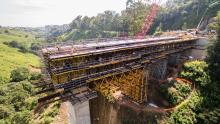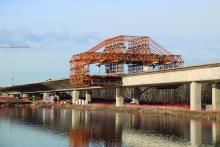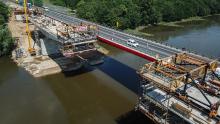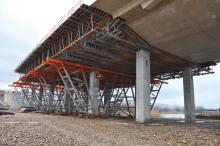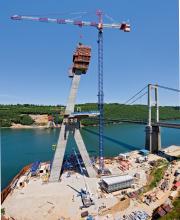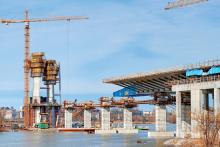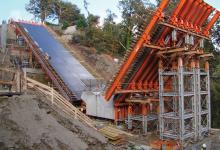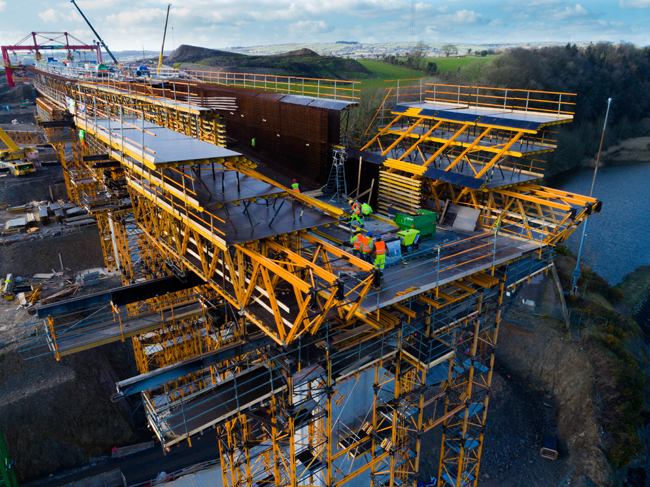
The €230 million project includes a 14km dual carriageway and a three-tower 900m-long extrados bridge over the Barrow River between Pink Point and Strokestown – to be open in early 2020 – that bypasses the town of New Ross.
The extradosed bridge is characterised by its cables set at lower angles, meaning that pylons are shorter in relation to deck span lengths. ULMA was responsible for the transverse section of the approach span decks, the piers, pylons and pier segments of the bridge.
The project consists of eight piers ranging from 12-36m high. The piles are rectangular, measuring 2m by 6m and 3.4m by 6m, with chamfers at the corners and midline of the section. The pier cap is curved with a radius of 18.8m and reaches a height of 8m.
aThe formwork employed for the piers, both in the rectangular and circular sections, was the ENKOFORM V-100 system supported by CR-250 climbing brackets. The climbing assemblies were 6m in height, featuring two stories of working platforms for pouring and auxiliary jobs. The same formwork assemblies were reused to complete the three pylons with heights ranging from 16-27m and variable sections.
The majority of the bridge was built using gantry falsework, since the geotechnical complexity of the ground below made other shoring systems impractical or impossible. The gantry falsework allowed for savings in foundation work.
The modular MK System was used to span lengths of 35m, 45m, 75m and 95m in the approach spans. Forming trusses, shoring towers and formwork assemblies, Ulma said that this system provided significant savings in diverse applications.
The 21m trusses and 36m shoring towers are extremely durable with a high load-bearing capacity and easily capable of spanning large distances. This makes them indispensable in the soft ground on both sides of the riverbank.
The pier segment for piles four and five, measuring 21m-wide and 12m-long, was built using ENKOFORM HMK and backed by two shoring systems. The formwork system was divided into five distinct assemblies: one of 3.4m set on the pile and shored by T-60 towers reaching 23m in height, and four of 2.5m supported by eight MK Trusses and MK Towers. The formwork assemblies were connected longitudinally with a profile 12m-long.

